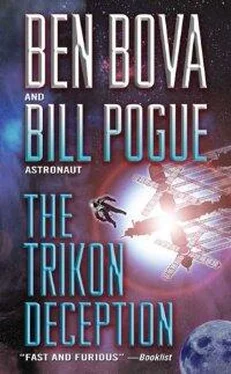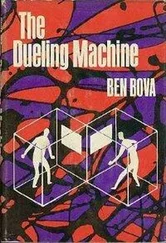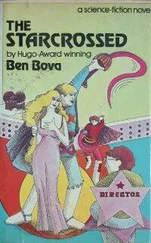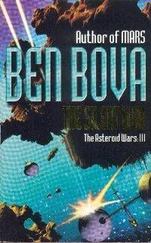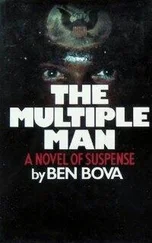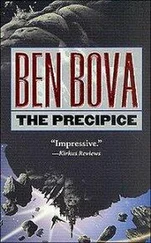“Carla Sue Gamble has been murdered,” said Dan.
O’Donnell turned slowly, deliberately, toward him. “That’s funny, I don’t remember killing her.”
“You didn’t.”
“Whew, what a relief.” O’Donnell fixed his eye back on the telescope. “You have any idea where Neptune is? Been looking for that bastard for hours.”
Dan braced himself, then wrenched O’Donnell away from the telescope.
“Look, Hugh, I didn’t come here to bullshit about the sky. I want some answers. Now what in the good Christ is happening on my space station?”
“I fucked up,” O’Donnell said with sadness. “No, to be more precise, someone fucked me up.”
“That’s what you were trying to tell me back in the rumpus room?”
“I did a lot of drugs in my day, but I never fooled around with fentanyl. Too strong. No margin for error. People die doing that shit,” said O’Donnell. “It was in my toothpaste. Somehow. I remember it tasted funny. You can check it. There’s a trace left.”
“I will,” said Dan, knowing that the investigators would test it Earthside. “But who? Why?”
“Who could be anyone. Anybody on the station is capable of synthesizing fentanyl, except maybe you and your crew. And why? Well, there’s a damn good reason.”
“Such as?”
O’Donnell swam for the telescope, but Dan grabbed his shoulder. O’Donnell stared at him for a full minute. Then he told him.
He started with the legal assassination of his company, Agritech, Inc. His name was Jack O’Neill then, and he had already long been using drugs— principally cocaine and amphetamines—as a way of coping with his myriad personal and legal problems. But the injunction that the Foundation for Assessing Technology had won against his company accelerated his downward spiral into a plummeting nosedive. One night, after eluding a repo man who had come to claim his BMW, he tooled the barrios of East L.A. looking for a bag of blow. He scored five minutes before being arrested in a police sweep.
He spent a night and a day in an open-air holding pen in the Los Angeles Coliseum. His polo shirt and penny loafers marked him as an outsider, maybe a police informer, and gangs of suspicious, angry detainees beat the shit out of him repeatedly. As dusk reddened the sky, two officers dragged him to a makeshift courtroom for arraignment. He was battered, bloody, and mumbling incoherently. A man in a blue suit, whom he took to be his court-appointed lawyer, spoke to the judge. The next thing he knew, he was seated with the man in the back of a gray car that hurtled away from the Coliseum.
The man identified himself only as Welch and stated he had posted bond for him. If O’Neill played ball, his arrest would be expunged and he would be given a new life and a new identity. If he didn’t play ball, he could spend the next ten years as a homicidal weight lifter’s jailhouse wife.
So he became Hugh O’Donnell. Welch supervised his therapy in a thousand-dollar-a-day substance abuse clinic and monitored his aftercare. One year later he was clean, and Welch installed him in a lab in the Tehachapi Mountains. The lab was supposedly owned by a company named Simi Bioengineering, but O’Donnell was convinced it was a government installation. He worked on several projects, each involving the removal of enzymes from various plants by genetic means. He suspected that these projects were mere dry runs for something much more important.
He stayed at the lab for two years, leaving only for meetings of a motorcycle club for recovered addicts he had cofounded. At the beginning of July he was informed by Welch that he had been selected to conduct research on a top-secret project so potentially dangerous that it could only be performed on Trikon Station.
“You know the rest,” O’Donnell concluded.
Dan was reluctant to agree. The story may have jibed with information he and Lorraine had pieced together. But he still heard her cautionary words: Addicts are con artists. Even if they clean up, those other habits die hard. Dan wanted to question him, but before he had a chance a call came over the observatory intercom.
“Hi, Dan. Oh, I can’t believe I’m saying this.” The voice belonged to Lorraine. She sounded giddy, like a giggling little girl. “I want you to know that I really do care about you. Maybe it’s because—”
“Lorraine!” shouted Dan.
“—it’s because I can’t see you right now. Sometimes it’s easier—”
He flew to the comm console. “Lorraine, this is Dan. Acknowledge.”
“—to say things over a gadget rather than in person.” Her voice faded.
“What the hell was that all about?” said O’Donnell.
“Lorraine, acknowledge,” Dan repeated. But all he raised was silence. “Damned if I know.”
Dan pulled himself to the airlock and peered through the portholes.
“Crazy broad must have O.D. too,” he said, hoping that explained the message. He moved his head around the porthole, focusing on the silhouette of each of the modules one at a time. Everything appeared normal.
“Aw hell, Dan. There you go selling yourself short. A woman doesn’t need Orbital Dementia to be interested in you. She needs to be totally insane.”
Dan answered him with a grunt as his eyes scanned from The Bakery to Jasmine to ELM.
“Anyway,” said O’Donnell, trying to win back his audience, “I think whoever slipped me the mickied toothpaste knows what he’s doing.”
Dan nodded absently. The Mars module, which jutted out beyond the trailing edge of the diamond as a continuation of the connecting tunnel, seemed to be askew. Dan blinked. The module still seemed bent. Thinking it was an anomalous reflection on the glass, he moved his head. The module was not merely out of line. It was completely broken from its mooring.
“Holy shit!” he said. “The goddamn Mars module just separated from the station.”
“What?” said O’Donnell.
“You heard me. Get your ass suited up. We’ve got to get back there.”
As O’Donnell struggled into the EMU, Dan tried to raise Lorraine on the comm unit. Channel D was silent. He opened all the channels. A synthesized ringing made his flesh crawl: a life-support alarm.
“You and I will talk over channel C,” he said to O’Donnell as he put on his helmet.
O’Donnell grunted. Dan helped him struggle into his suit, the need to hurry fighting against the need to make certain the suit was safely sealed and working properly. There was no need to prebreathe. The pure oxygen of the observatory was the same pressure as the EMUs. And entering the higher pressure of the station itself would pose no danger of embolism.
Dan led the way out the hatch and fit himself into the MMU. “Sit on my lap.” he instructed O’Donnell.
“What lap?” But the space-suited figure backed against Dan, who wrapped his legs around O’Donnell’s waist.
“Lock your arms around my knees,” Dan said.
“Just like biking,” O’Donnell said. “Almost.” His voice in Dan’s earphones sounded full of doubt, if not outright fear.
The station shuddered. Like a giant sail suddenly caught in a crosswind. Like a man startled by danger.
“Did you see that?” Dan heard a voice yell, high-pitched with fear. His own.
“Looked like the whole damned station… shook,” O’Donnell said, hollow-voiced.
Dan fought back murderous fury and the terrible fear that clawed at his chest as he watched the space station begin to wobble and sway. Through the heavily tinted visor of his helmet he saw the bulbous, burnt-orange structure of the detached Mars module begin to drift away, like a rudderless ship caught by an evil tide. The broad wings of the solar panels were swaying, undulating visibly. Dan knew they would break up within minutes.
Читать дальше
